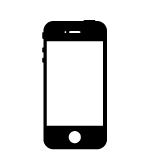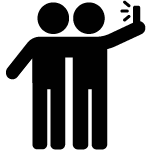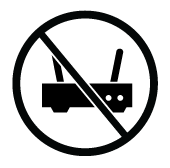Large shares of Americans are connected to the world of digital information while “on the go” via smartphones and other mobile devices. Explore the patterns and trends that have shaped the mobile revolution below.
To better understand Americans’ smartphone and broadband adoption, Pew Research Center surveyed 5,626 U.S. adults from Feb. 1 to June 10, 2024. SSRS conducted this National Public Opinion Reference Survey (NPORS) for the Center using address-based sampling and a multimode protocol that included web, mail and phone. This way nearly all U.S. adults have a chance of selection. The survey is weighted to be representative of the U.S. adult population by gender, race and ethnicity, education and other categories.
Surveys fielded before 2023 were conducted via phone. For more on the mode shift in 2023, read our Q&A.
Here are the questions used for this analysis, along with responses, and its methodology.

Mobile phone ownership over time
The vast majority of Americans – 98% – now own a cellphone of some kind. About nine-in-ten (91%) own a smartphone, up from just 35% in the Center’s first survey of smartphone ownership conducted in 2011.
Mobile phone ownership
% of U.S. adults who say they own a …
| Year | Cellphone | Smartphone |
|---|---|---|
| 10/27/2002 | 62% | |
| 11/30/2004 | 65% | |
| 2/9/2005 | 66% | |
| 12/31/2005 | 67% | |
| 3/28/2006 | 66% | |
| 4/6/2006 | 73% | |
| 9/5/2007 | 76% | |
| 12/2/2007 | 75% | |
| 1/13/2008 | 77% | |
| 5/11/2008 | 78% | |
| 8/10/2008 | 82% | |
| 12/20/2008 | 84% | |
| 1/27/2009 | 85% | |
| 4/19/2009 | 85% | |
| 9/14/2009 | 84% | |
| 12/27/2009 | 83% | |
| 1/19/2010 | 80% | |
| 5/30/2010 | 82% | |
| 9/13/2010 | 85% | |
| 11/1/2010 | 84% | |
| 11/24/2010 | 82% | |
| 11/28/2010 | 82% | |
| 12/21/2010 | 81% | |
| 3/20/2011 | 86% | |
| 5/22/2011 | 83% | 35% |
| 8/26/2011 | 84% | |
| 12/21/2011 | 87% | |
| 1/8/2012 | 88% | |
| 1/15/2012 | 87% | 39% |
| 2/19/2012 | 88% | 45% |
| 4/3/2012 | 88% | 46% |
| 8/5/2012 | 87% | 44% |
| 8/7/2012 | 89% | |
| 9/6/2012 | 85% | 45% |
| 9/23/2012 | 88% | 43% |
| 9/30/2012 | 89% | |
| 10/14/2012 | 88% | |
| 11/4/2012 | 89% | |
| 11/10/2012 | 84% | 46% |
| 12/9/2012 | 87% | 45% |
| 12/16/2012 | 88% | |
| 1/6/2013 | 89% | 51% |
| 5/19/2013 | 91% | 56% |
| 7/14/2013 | 90% | 53% |
| 7/28/2013 | 91% | 53% |
| 9/16/2013 | 89% | 54% |
| 9/30/2013 | 91% | 55% |
| 10/6/2013 | 92% | 58% |
| 1/5/2014 | 92% | 55% |
| 1/12/2014 | 90% | 58% |
| 1/26/2014 | 91% | 55% |
| 2/18/2014 | 90% | |
| 4/27/2014 | 92% | |
| 9/21/2014 | 91% | |
| 12/21/2014 | 89% | 59% |
| 4/12/2015 | 92% | 67% |
| 7/12/2015 | 92% | 68% |
| 11/15/2015 | 91% | 69% |
| 4/4/2016 | 92% | 72% |
| 5/3/2016 | 92% | 70% |
| 11/6/2016 | 95% | 77% |
| 1/10/2018 | 95% | 77% |
| 2/7/2019 | 96% | 81% |
| 2/8/2021 | 97% | 85% |
| 9/5/2023 | 97% | 90% |
| 6/10/2024 | 98% | 91% |
Source: Surveys of U.S. adults conducted 2002-2024.
Note: The vertical line indicates a change in mode. Polls from 2002-2021 were conducted via phone. In 2023, the poll was conducted via web and mail. In 2024, the poll was conducted via web, mail and phone. For more on the mode shift in 2023, read our Q&A. Refer to the topline for more information on how question wording varied over the years. Respondents who did not give an answer are not shown.
PEW RESEARCH CENTER

Who owns cellphones and smartphones?
Substantial majorities of Americans across a wide range of demographic groups are cellphone owners. The same is true for smartphone ownership – though some differences do emerge, particularly by age, household income and level of formal education.
% of U.S. adults who say they own a __, by …
Contents
| Ages 18-29 | 30-49 | 50-64 | 65+ | |
|---|---|---|---|---|
| Cellphone | 99 | 99 | 98 | 94 |
| Smartphone | 98 | 97 | 91 | 79 |
| Cellphone, but not a smartphone | 1 | 2 | 6 | 15 |
Source: Survey of U.S. adults conducted Feb. 1-June 10, 2024.
| Men | Women | |
|---|---|---|
| Cellphone | 97 | 98 |
| Smartphone | 92 | 91 |
| Cellphone, but not a smartphone | 5 | 6 |
Source: Survey of U.S. adults conducted Feb. 1-June 10, 2024.
| White | Black | Hispanic | Asian* | |
|---|---|---|---|---|
| Cellphone | 98 | 97 | 99 | 99 |
| Smartphone | 91 | 87 | 93 | 95 |
| Cellphone, but not a smartphone | 6 | 9 | 5 | 2 |
Note: White, Black and Asian adults include those who report being only one race and are not Hispanic. Hispanics are of any race. Respondents who did not give an answer are not shown.
Source: Survey of U.S. adults conducted Feb. 1-June 10, 2024.
| High school or less | Some college | College graduate+ | |
|---|---|---|---|
| Cellphone | 96 | 98 | 99 |
| Smartphone | 85 | 94 | 95 |
| Cellphone, but not a smartphone | 10 | 4 | 3 |
Source: Survey of U.S. adults conducted Feb. 1-June 10, 2024.
| Urban | Suburban | Rural | |
|---|---|---|---|
| Cellphone | 97 | 99 | 97 |
| Smartphone | 91 | 93 | 88 |
| Cellphone, but not a smartphone | 5 | 5 | 7 |
Source: Survey of U.S. adults conducted Feb. 1-June 10, 2024.
| Rep/Lean Rep | Dem/Lean Dem | |
|---|---|---|
| Cellphone | 98 | 98 |
| Smartphone | 92 | 92 |
| Cellphone, but not a smartphone | 6 | 5 |
Source: Survey of U.S. adults conducted Feb. 1-June 10, 2024.

Smartphone dependency over time
Today, 15% of U.S. adults are “smartphone-only” internet users – meaning they own a smartphone but say they do not subscribe to a home broadband service.
% of U.S. adults who say they do not use broadband at home but own smartphones
| U.S. adults | |
|---|---|
| 2013 | 8% |
| 2015 | 13% |
| 2016 | 12% |
| 2018 | 20% |
| 2019 | 17% |
| 2021 | 15% |
| 2023 | 15% |
| 2024 | 15% |
Source: Surveys of U.S. adults conducted 2013-2024. Data for each year is based on a pooled analysis of all surveys containing broadband and smartphone questions fielded during that year.
Note: The vertical line indicates a change in mode. Polls from 2013-2021 were conducted via phone. In 2023, the poll was conducted via web and mail. In 2024, the poll was conducted via web, mail and phone. For more on the mode shift in 2023, read our Q&A. Refer to the topline for more information on how question wording varied over the years. Respondents who did not give an answer are not shown.
PEW RESEARCH CENTER

Who is smartphone dependent?
Reliance on smartphones for online access is especially common among Americans with lower household incomes and those with lower levels of formal education.
Contents
% of U.S. adults who are smartphone dependent, by age
| Ages 18-29 | 30-49 | 50-64 | 65+ | |
|---|---|---|---|---|
| 2013 | 12% | 9% | 7% | 3% |
| 2015 | 19% | 16% | 11% | 7% |
| 2016 | 17% | 13% | 11% | 7% |
| 2018 | 28% | 24% | 16% | 10% |
| 2019 | 22% | 18% | 14% | 12% |
| 2021 | 28% | 11% | 13% | 12% |
| 2023 | 20% | 11% | 14% | 16% |
| 2024 | 21% | 11% | 14% | 17% |
Source: Surveys of U.S. adults conducted 2013-2024. Data for each year is based on a pooled analysis of all surveys containing broadband and smartphone questions fielded during that year.
Note: The vertical line indicates a change in mode. Polls from 2013-2021 were conducted via phone. In 2023, the poll was conducted via web and mail. In 2024, the poll was conducted via web, mail and phone. For more on the mode shift in 2023, read our Q&A. Refer to the topline for more information on how question wording varied over the years. Respondents who did not give an answer are not shown.
PEW RESEARCH CENTER
Note: The vertical line indicates a change in mode. Polls from 2013-2021 were conducted via phone. In 2023, the poll was conducted via web and mail. In 2024, the poll was conducted via web, mail and phone. For more on the mode shift in 2023, read our Q&A. Refer to the topline for more information on how question wording varied over the years. White, Black and Asian adults include those who report being only one race and are not Hispanic. Hispanic adults are of any race. Respondents who did not give an answer are not shown.
% of U.S. adults who are smartphone dependent, by race and ethnicity
| White | Black | Hispanic | Asian* | |
|---|---|---|---|---|
| 2013 | 6% | 10% | 16% | |
| 2015 | 10% | 19% | 23% | |
| 2016 | 9% | 15% | 23% | |
| 2018 | 14% | 24% | 35% | |
| 2019 | 12% | 23% | 25% | |
| 2021 | 12% | 17% | 25% | |
| 2023 | 12% | 21% | 20% | 14% |
| 2024 | 12% | 19% | 22% | 17% |
Source: Surveys of U.S. adults conducted 2013-2024. Data for each year is based on a pooled analysis of all surveys containing broadband and smartphone questions fielded during that year.
* Estimates for Asian adults are representative of English speakers only.
Note: The vertical line indicates a change in mode. Polls from 2013-2021 were conducted via phone. In 2023, the poll was conducted via web and mail. In 2024, the poll was conducted via web, mail and phone. For more on the mode shift in 2023, read our Q&A. Refer to the topline for more information on how question wording varied over the years. White, Black and Asian adults include those who report being only one race and are not Hispanic. Hispanic adults are of any race. Respondents who did not give an answer are not shown.
PEW RESEARCH CENTER
% of U.S. adults who are smartphone dependent, by gender
| Men | Women | |
|---|---|---|
| 2013 | 9% | 8% |
| 2015 | 14% | 13% |
| 2016 | 12% | 12% |
| 2018 | 20% | 19% |
| 2019 | 17% | 16% |
| 2021 | 14% | 15% |
| 2023 | 15% | 14% |
| 2024 | 15% | 15% |
Source: Surveys of U.S. adults conducted 2013-2024. Data for each year is based on a pooled analysis of all surveys containing broadband and smartphone questions fielded during that year.
Note: The vertical line indicates a change in mode. Polls from 2013-2021 were conducted via phone. In 2023, the poll was conducted via web and mail. In 2024, the poll was conducted via web, mail and phone. For more on the mode shift in 2023, read our Q&A. Refer to the topline for more information on how question wording varied over the years. Respondents who did not give an answer are not shown.
PEW RESEARCH CENTER
% of U.S. adults who are smartphone dependent, by annual household income
| Less than $30,000 | $30,000- $49,999 | $50,000- $74,999 | $75,000+ | Less than $30,000 (NPORS) | $30,000- $69,999 (NPORS) | $70,000- $99,999 (NPORS) | $100,000+ (NPORS) | |
|---|---|---|---|---|---|---|---|---|
| 2013 | 12% | 9% | 5% | 5% | ||||
| 2015 | 20% | 15% | 10% | 6% | ||||
| 2016 | 21% | 12% | 10% | 5% | ||||
| 2018 | 31% | 22% | 14% | 9% | ||||
| 2019 | 26% | 20% | 10% | 6% | ||||
| 2021 | 27% | 19% | 6% | 6% | ||||
| 2023 | 28% | 19% | 9% | 4% | ||||
| 2024 | 31% | 17% | 9% | 6% |
Source: Surveys of U.S. adults conducted 2013-2024. Data for each year is based on a pooled analysis of all surveys containing broadband and smartphone questions fielded during that year.
Note: The vertical line indicates a change in mode. Polls from 2013-2021 were conducted via phone. In 2023, the poll was conducted via web and mail. In 2024, the poll was conducted via web, mail and phone. For more on the mode shift in 2023, read our Q&A. Refer to the topline for more information on how question wording varied over the years. Respondents who did not give an answer are not shown.
PEW RESEARCH CENTER
% of U.S. adults who are smartphone dependent, by education level
| Year | Less than high school graduate | High school graduate | High school or less | Some college | College graduate |
|---|---|---|---|---|---|
| 2013 | 14% | 11% | 8% | 4% | |
| 2015 | 21% | 17% | 14% | 6% | |
| 2016 | 27% | 15% | 12% | 5% | |
| 2018 | 39% | 22% | 21% | 10% | |
| 2019 | 32% | 24% | 16% | 4% | |
| 2021 | 23% | 15% | 4% | ||
| 2023 | 24% | 13% | 6% | ||
| 2024 | 24% | 13% | 7% |
Source: Surveys of U.S. adults conducted 2013-2024. Data for each year is based on a pooled analysis of all surveys containing broadband and smartphone questions fielded during that year.
Note: The vertical line indicates a change in mode. Polls from 2013-2021 were conducted via phone. In 2023, the poll was conducted via web and mail. In 2024, the poll was conducted via web, mail and phone. For more on the mode shift in 2023, read our Q&A. Refer to the topline for more information on how question wording varied over the years. Respondents who did not give an answer are not shown.
PEW RESEARCH CENTER
% of U.S. adults who are smartphone dependent, by community type
| Urban | Suburban | Rural | |
|---|---|---|---|
| 2013 | 9% | 7% | 9% |
| 2015 | 15% | 12% | 15% |
| 2016 | 12% | 12% | 14% |
| 2018 | 22% | 17% | 17% |
| 2019 | 17% | 13% | 20% |
| 2021 | 16% | 12% | 17% |
| 2023 | 17% | 11% | 18% |
| 2024 | 19% | 12% | 19% |
Source: Surveys of U.S. adults conducted 2013-2024. Data for each year is based on a pooled analysis of all surveys containing broadband and smartphone questions fielded during that year.
Note: The vertical line indicates a change in mode. Polls from 2013-2021 were conducted via phone. In 2023, the poll was conducted via web and mail. In 2024, the poll was conducted via web, mail and phone. For more on the mode shift in 2023, read our Q&A. Refer to the topline for more information on how question wording varied over the years. Respondents who did not give an answer are not shown.
PEW RESEARCH CENTER

Find out more
This fact sheet was compiled by Research Assistant Olivia Sidoti and Research Associate Wyatt Dawson. Former Research Analyst Risa Gelles-Watnick, Research Analyst Michelle Faverio, Digital Producer Sara Atske, Associate Information Graphics Designer Kaitlyn Radde and Research Assistant Eugenie Park also provided assistance.
Follow these links for more in-depth analysis of the impact of mobile technology on American life.
- Americans’ Social Media Use (Jan. 31, 2024)
- Americans’ Use of Mobile Technology and Home Broadband (Jan. 31, 2024)
- Q&A: How and why we’re changing the way we study tech adoption (Jan. 31, 2024)
Find more reports and blog posts related to internet and technology.
For more information on the data collected from 2023 to present, refer to the Center’s National Public Opinion Reference Survey (NPORS).